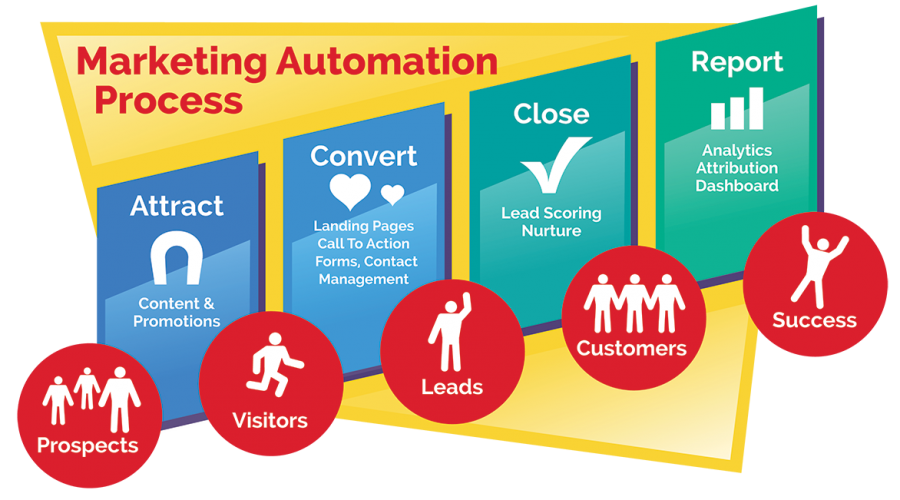
Marketing automation can be defined as the use of marketing platforms and software technologies in order to automate all marketing campaigns and activities, with an end result of increased lead generation. The main objective of marketing automation is to replace repetitive, manual tasks with automated solutions in order to improve operational efficiency and reduce the scope for human error. Marketing automation tools are used to plan, execute and measure marketing campaigns, online as well as offline.
A part of customer relationship management, marketing automation was originally just focused on email marketing automation. In recent times, automation has shifted towards inbound marketing and social media management. Marketing automation tools are used by various large scale as well as medium and small-scale companies to control and manage omnichannel strategies as well as simplify client communication. Marketing automation is used in key organizational activities including lead generation, lead nurturing, lead management, lead scoring, segmentation, relationship marketing and much more.

Source: reachmarketing.com
A marketing automation software can make a large number of repetitive operations easy and efficient, thus saving a lot of time and money. Employing a comprehensive marketing automation strategy can offer several benefits to a company. One of the major advantages of using marketing automation lies in the acquirement and management of leads. Marketing automation platforms enable lead scoring, which can be used to determine whether a lead is hot enough to be converted into a prospect or not. Moreover, leads can also be prioritized with lead scoring and grading and appropriate action can be taken on the leads based on priority. These software tools also facilitate lead nurturing to ensure that prospects which are not yet hot can be nurtured with educational and informational content to spark their interest. Marketing automation ensures that sales and marketing activities are synced to get the best results. Incorporating marketing automation into business strategy ensures higher conversion rates and increased revenue.
However, most companies have a wrong understanding of what marketing automation actually is. Marketing automation is often confused with email marketing. While email marketing involves marketing only via email, marketing automation relates to marketing campaigns across various social channels, apart from email. Companies often feel that once marketing automation tools have been incorporated, results will automatically start delivering, without any efforts. Marketing automation strategies must be continuously assessed and measured to ensure that they deliver the best results. Many companies often use marketing automation to delivery spammy messages to customers which ultimately results in lower conversion rates. Rather, companies should focus on using marketing automation tools to create highly customized and personalized messages for customers which will help in increasing profits and revenue. Marketing automation is more than just a tool to accelerate profits. Strategically using these tools can provide many benefits to both companies and customers. Watch this space as we bring you more on marketing automation.
